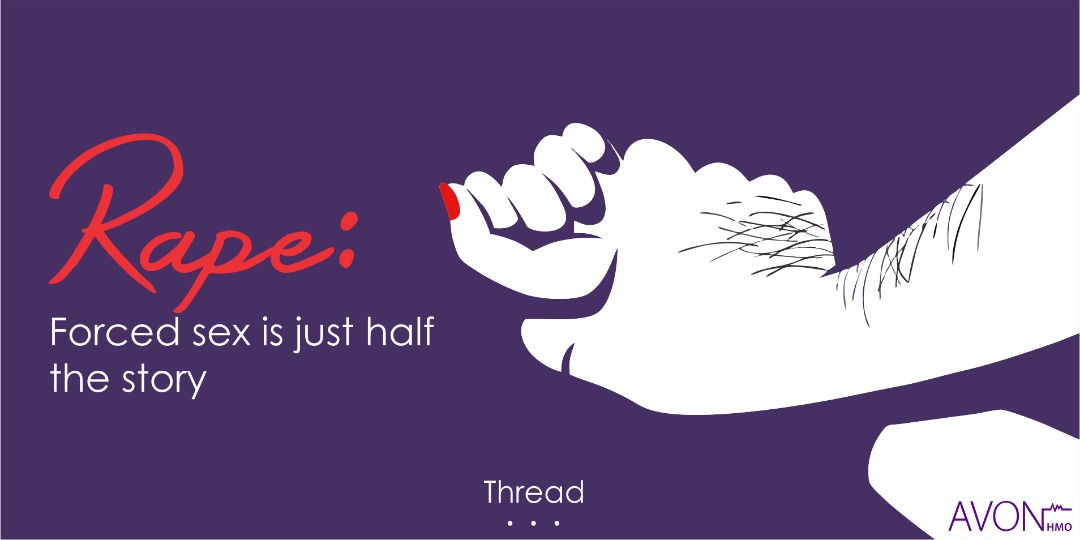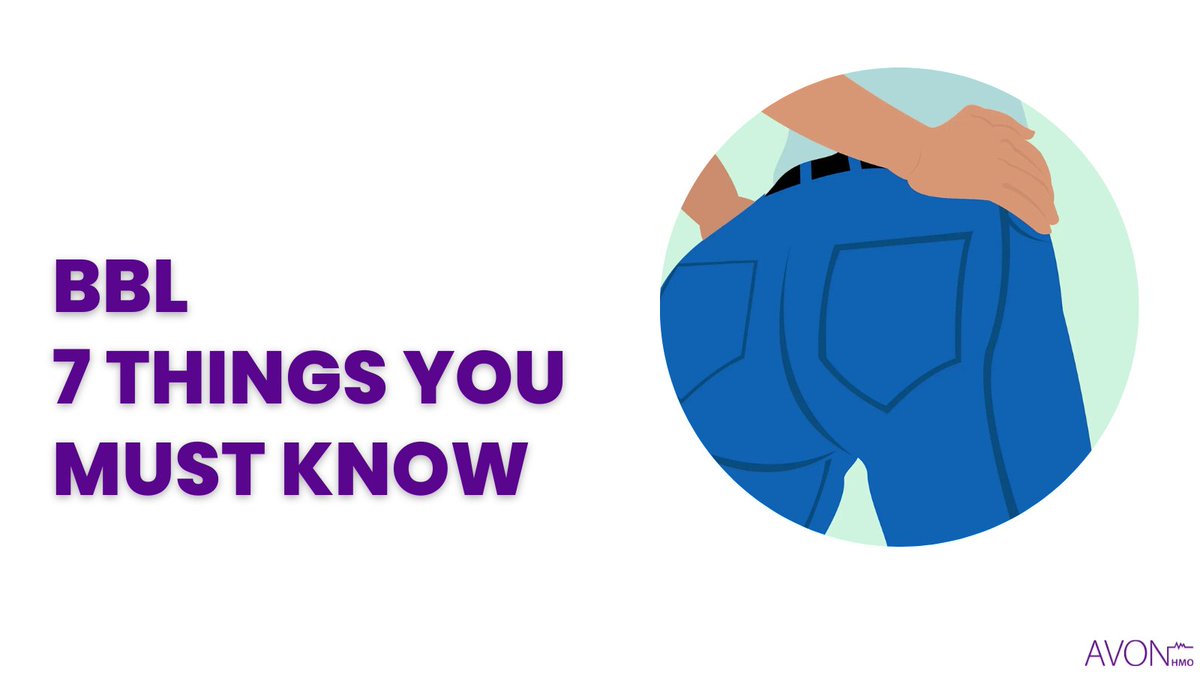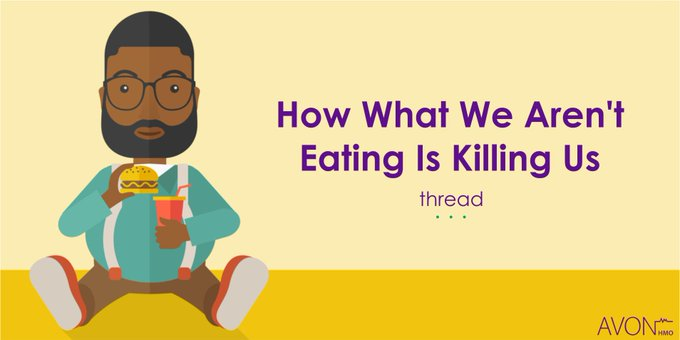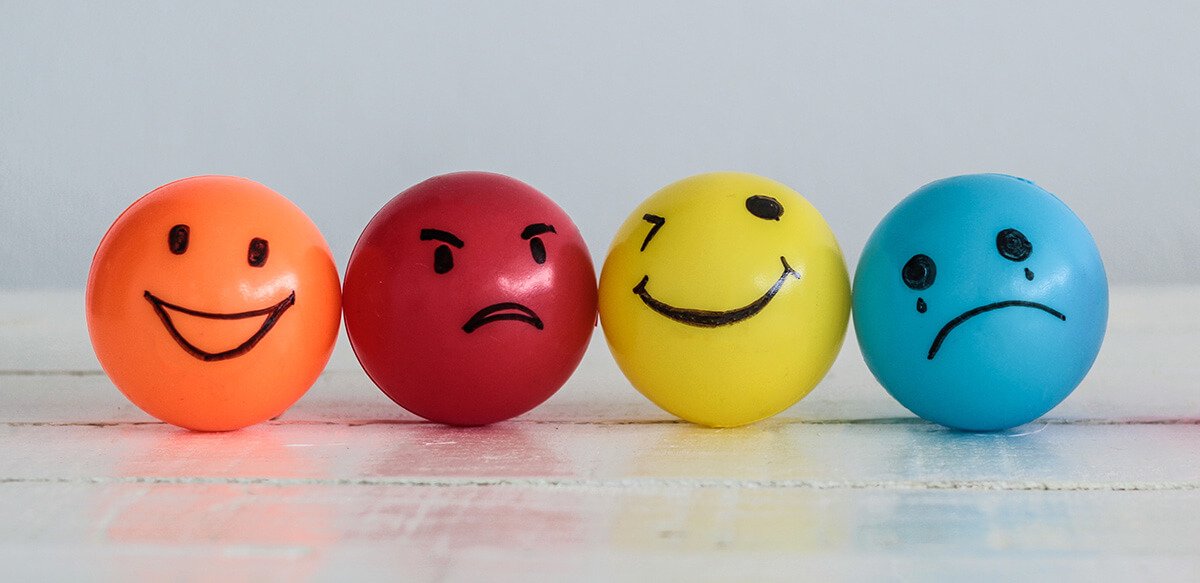As a healthcare company, one led & supported women across various units, we can't afford to be silent in the face of recent happenings.
Rape is absolutely inhuman, wrong & the harmful effects transcend forced intercourse.
Here's how.
#Thread #AvonsPracticalTips #SayNoToRapist
Rape is absolutely inhuman, wrong & the harmful effects transcend forced intercourse.
Here's how.
#Thread #AvonsPracticalTips #SayNoToRapist

The most immediate person affected by sexual violence is the victim/survivor, but the effects of sexual violence also go far beyond individual survivors, impacting their closest relationships as well as impacting communities & society at large.
#AvonsPracticalTips
#AvonsPracticalTips
1. Impact on the survivor
Regardless of whether an assault happened recently or many years ago, it may impact daily functioning. A wide range of reactions can impact victims. Some common emotional, psychological and physical reactions follow.
#AvonsPracticalTips
Regardless of whether an assault happened recently or many years ago, it may impact daily functioning. A wide range of reactions can impact victims. Some common emotional, psychological and physical reactions follow.
#AvonsPracticalTips
a.) Emotional reactions to rape
- Guilt, shame, self-blame
- Embarrassment
- Fear, distrust
- Sadness
- Vulnerability
- Isolation
#AvonsPracticalTips
- Guilt, shame, self-blame
- Embarrassment
- Fear, distrust
- Sadness
- Vulnerability
- Isolation
#AvonsPracticalTips
b.) Psychological reactions to rape
- Nightmares
- Flashbacks
- Depression
- Difficulty concentrating
- Post Traumatic Stress Disorder (PTSD)
- Suicidal thoughts and tendencies
#AvonsPracticalTips
- Nightmares
- Flashbacks
- Depression
- Difficulty concentrating
- Post Traumatic Stress Disorder (PTSD)
- Suicidal thoughts and tendencies
#AvonsPracticalTips
c.) Physical reactions to rape
- Changes in eating or sleeping patterns
- Increased startle response
- Concerns about physical safety
- Lack of control
- Anger
- Numbness
- Confusion
- Shock, disbelief
- Denial
#AvonsPracticalTips
- Changes in eating or sleeping patterns
- Increased startle response
- Concerns about physical safety
- Lack of control
- Anger
- Numbness
- Confusion
- Shock, disbelief
- Denial
#AvonsPracticalTips
2. Impact of rape on communities
Sexual violence rips at the fabric of community well-being - schools, workplaces, neighbourhoods, campuses, and cultural or religious communities feel a mixture of fear and anger in the aftermath of a sexual assault.
#AvonsPracticalTips
Sexual violence rips at the fabric of community well-being - schools, workplaces, neighbourhoods, campuses, and cultural or religious communities feel a mixture of fear and anger in the aftermath of a sexual assault.
#AvonsPracticalTips
Additionally, there are financial costs which can include medical and mental health services, legal expenses, lost work time and productivity, and the incalculable lost contributions of individuals affected by sexual violence.
#AvonsPracticalTips
#AvonsPracticalTips
Although the economic costs of rape and sexual assault are hard to quantify and the data is limited, various research studies have examined such costs as medical and victim services, loss of productivity, and law enforcement resources.
#AvonsPracticalTips
#AvonsPracticalTips
Researchers also generally agree that intangible costs of rape, though difficult to monetize, are especially high in cases of sexual assault, due to the serious physical and mental health consequences for survivors.
#AvonsPracticalTips
#AvonsPracticalTips
In addition, rape is the most costly to its victims due to losses associated with job turnover, sick leave, and individual and group productivity among federal employees.
#AvonsPracticalTips
#AvonsPracticalTips
According to a study by Ellis, Atkeson & Calhoun (1981), 50% of rape victims lost or were forced to quit their jobs in the year following their rapes due to the severity of the impact of their trauma.
#AvonsPracticalTips
#AvonsPracticalTips
3. Impact of rape on loved ones
When someone is a victim of sexual violence, it affects not only the survivor but everyone around them. Sexual violence can affect many people in a victim/survivor’s life: parents, friends, partners, co-workers, etc.
#AvonsPracticalTips
When someone is a victim of sexual violence, it affects not only the survivor but everyone around them. Sexual violence can affect many people in a victim/survivor’s life: parents, friends, partners, co-workers, etc.
#AvonsPracticalTips
Part of what makes it so difficult for loved ones of a rape victim is not knowing what to say or do.
With that in mind, here are ways to offer constructive help and support.
#AvonsPracticalTips
With that in mind, here are ways to offer constructive help and support.
#AvonsPracticalTips
a.) Allow the survivor to make his or her own decisions
This can be difficult but while it can be very tempting to “take over” for a while in an attempt to help the survivor, remember that rape represents a moment that's out of the survivor's control.
#AvonsPracticalTips
This can be difficult but while it can be very tempting to “take over” for a while in an attempt to help the survivor, remember that rape represents a moment that's out of the survivor's control.
#AvonsPracticalTips
As a result, reestablishing that control is very important. Try to defer to a survivor’s decisions, even if they decide to let you make some decisions. Then at least that was their choice and not yours.
#AvonsPracticalTips
#AvonsPracticalTips
If a survivor wants to talk, try to be an open listener. If they prefer not to talk about the assault, then try to be supportive in other ways, letting them know that you care about him/her and are willing to listen at a later time if so desired.
#AvonsPracticalTips
#AvonsPracticalTips
b.) Educate yourself about the myths of rape
A great deal of harm is done, often unintentionally, to survivors because the people around them believe the myths that surround rape. Rape is never the fault of the survivor, but rather the fault of the rapist.
#AvonsPracticalTips
A great deal of harm is done, often unintentionally, to survivors because the people around them believe the myths that surround rape. Rape is never the fault of the survivor, but rather the fault of the rapist.
#AvonsPracticalTips
Although the above tweet sounds like a simple, even obvious, fact, much of the misinformation that exists points to the victim as being responsible for the rape. Educating yourself allows you to provide informed, compassionate support.
#AvonsPracticalTips
#AvonsPracticalTips
c.) Be ready to listen
Being a willing listener, who acknowledges the feelings of a person, makes a significant positive impact. Sometimes it’s very useful to simply be with a person and create a safe silence.
#AvonsPracticalTips
Being a willing listener, who acknowledges the feelings of a person, makes a significant positive impact. Sometimes it’s very useful to simply be with a person and create a safe silence.
#AvonsPracticalTips
Non-judgmental support helps rape survivors tremendously as they recover from this traumatic event.
#AvonsPracticalTips
#AvonsPracticalTips
Finally, whether you know the rape victim or not, you have a role to play. Your support or lack of it makes a difference. How you respond to a victim/survivor can positively or negatively impact their healing process.
#AvonsPracticalTips
#AvonsPracticalTips
In studies of sexual assault survivors, receiving social support has been associated with many positive outcomes, including positive life change and growth as well as reduced PTSD and depressive symptoms.
ncbi.nlm.nih.gov/pmc/articles/P…
#AvonsPracticalTips
ncbi.nlm.nih.gov/pmc/articles/P…
#AvonsPracticalTips
Once again, we condemn every act of rape and sexual violence against women out there. What happened to Uwa is a grave injustice that we must put an end to.
Should you need assistance, organisations like the @MirabelCentreNG and the @DSVRT are available to support
Thank you.
Should you need assistance, organisations like the @MirabelCentreNG and the @DSVRT are available to support
Thank you.
• • •
Missing some Tweet in this thread? You can try to
force a refresh









